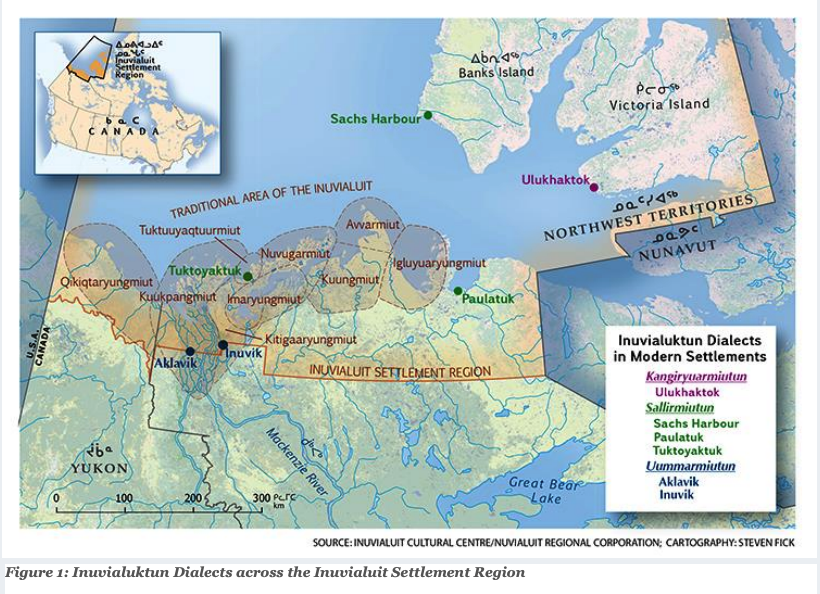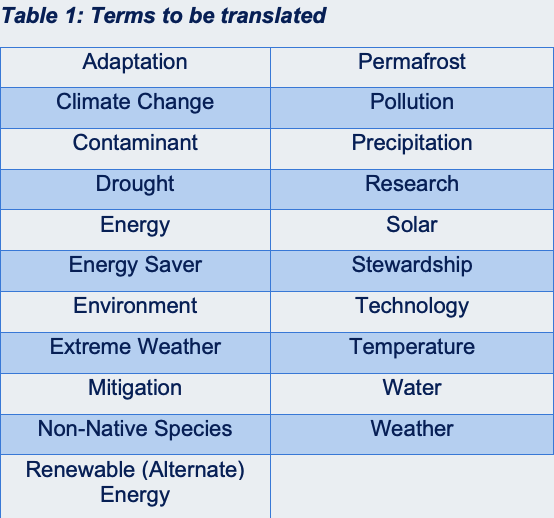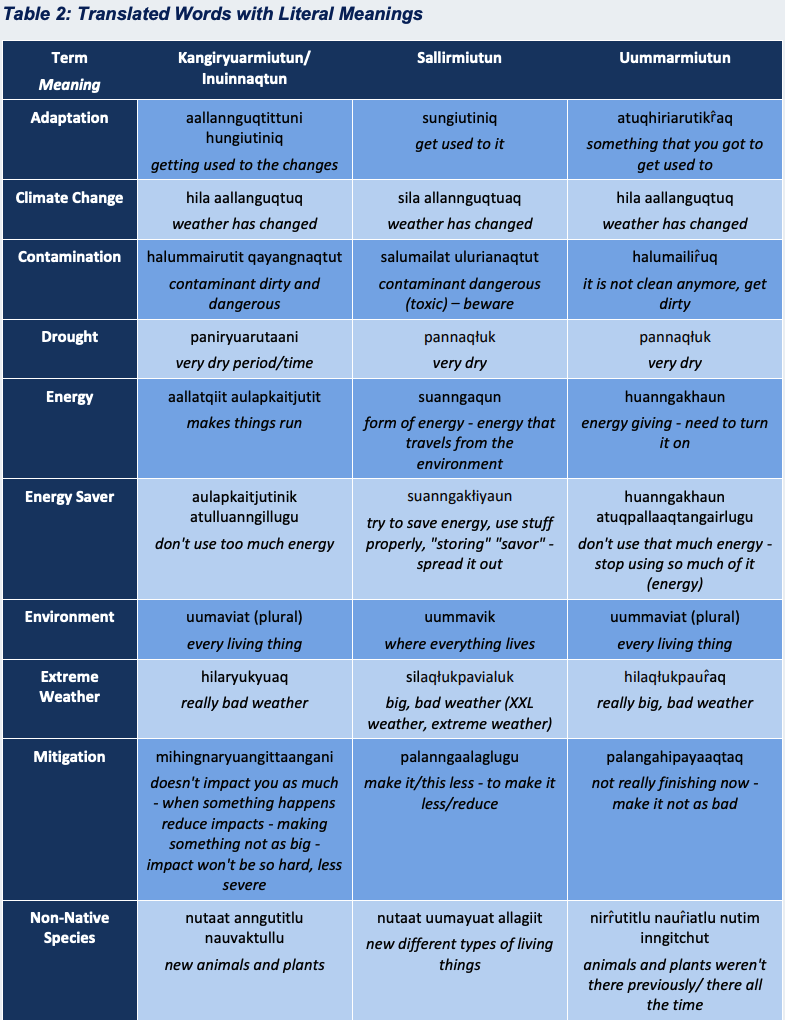Understanding and Assessing Impacts
Climate change impacts to the Arctic environment has also sparked an unprecedented growth in climate change research being conducted in Arctic communities across the globe. This growth in research has resulted in increasingly more sophisticated and specialized terminology being used in climate change discourse. As a direct result of this advancement in scientific terminology, climate change information relayed to Inuvialuit Settlement Region (ISR) communities has become increasingly difficult to comprehend, both conceptually and linguistically. Consequently, the gap between Traditional Knowledge (TK) and the scientific community has continued to increase over time, creating an unfortunate disconnect between researchers, politicians and ISR community members.
Sallirmiutun, Uummarmiutun, and Kangiryuarmiutun, collectively known as the Inuvialuktun language, are the three dialects spoken in the ISR (Figure 1). The Inuvialuktun language is spoken by fewer than 50 per cent of the population, many of whom are Elders. As the “true” holders of TK, Elders are often interviewed for numerous research and oral history initiatives/projects.


